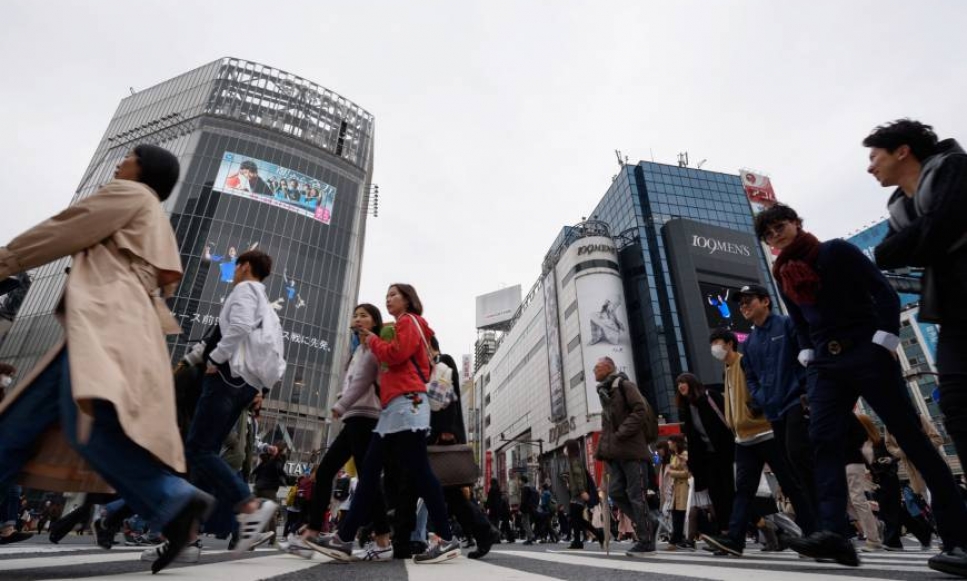 After being delayed twice, the Japanese government finally raised the consumption tax. (Image via The Japan Times)
After being delayed twice, the Japanese government finally raised the consumption tax. (Image via The Japan Times)
Japan raises the consumption tax to 10%
After being delayed twice, on Tuesday, the Japanese government finally announced its decision to raise the consumption tax from 8% to 10%. This was the first hike for the recent five years.The hike was a follow up to the first hike in April 2014, where the consumption tax was raised from 5% in 1997 to 8%. It was planned to be a two-stage hike. However, the second stage hike was delayed twice from the scheduled time in October 2015. First, it was delayed to April 2017 then to September 2019.
The tax might be slapped on almost all goods and services from books to cars, except food. On a side note, the Japanese government also regulated that for the transaction with electronic payments at smaller retailers, the Japanese customers get to enjoy a 5% rebate. While for the greater retailers, the customers enjoy only a 2% rebate.
The regulation aims to lead Japanese people to electronic payment, rather than cash. Compared to its neighboring countries, Japan is lagging behind when it comes to cashless payment.
It was estimated that the total of the revenue from the tax hike would be as much as ¥5.7 trillion, and half of it would be used to improve social security programs. One of these programs will be free preschool started in October.
The tax hike was Japan’s effort in battling the falling birthrate and aging population. Its economy might be performing well these recent months. However, the tax hike might affect Japan’s economy amid the rising tension between the United States (U.S) and China. Fortunately, in 2020, Japan is going to be the host for the Summer Olympics. The electronic payment rebate regulation might also help.
Source: https://www.bbc.com/news/business-49849484
 English
English Japan
Japan

sanofi patient assistance program cialis for daily viagra en ligne generic tadalafil 40 mg walgreens prescription prices comparison does goodrx coupons really work
ivermectin for cows how to buy stromectol how long does ivermectin last where can i buy ivermectin for cattle and swine
plaquenil classification plaquenil brand coupon long term effects of plaquenil how to take plaquenil
plaquenil hydroxychloroquine how to tell if plaquenil is working side effects when stopping plaquenil
modafinil reddit source buy provigil without prescription can you hallucinate on modafinil how much does modafinil cost
newest adhd drug sildenafil tab 20mg viagra cheap online viagra marijuana drug interaction male enhancement natural remedies sildenafil 50 mg tablet order prescription viagra online hydrocodone next day delivery cialis equivalent dose to viagra best male supplement gnc cheap online viagra cialis 5mg tablets reviews what is in viagra ingredients walgreens prescription prices comparison best libido booster for men over 50 online viagra cheap how to increase male libido naturally free coupons by mail online dr visit and prescription herbal equivalent to viagra order viagra pills online ed supplements walmart teva sildenafil vs viagra metformin actions in the body best female viagra viagras prescription male enhancement products what is in female viagra is grape seed oil good for you viagra use generic viagra without a doctor prescription buy prescription drugs online without best male supplements for libido viagra bestellen can i take cialis everyday benefits of viagra for women
ivermectin for squirrels can you give horse ivermectin to dogs how many doses of ivermectin to treat sacoptic mange?
amoxil cdc amoxicillin 500mg prescription can you give a rabbit amoxil chewable amoxicillin
dapoxetine review priligy 2018 does dapoxetine cause erectile disfunction how long does the effect of dapoxetine last
provigil surveillance can i buy provigil in stores can you mix modafinil with piracetam who makes the drug provigil
viagra cialis levitra sample pack viagra duration of action can viagra hurt you natural alternatives to viagra generic viagra review banana boat professional sunscreen samples penile enlargement options
artvigil vs modafinil where to buy provigil w/o prescription adverse medication reactions to provigil how to enhance modafinil
azithromycin and alcohol zithromax script zithromax for upper respiratory infection what is azithromycin tablets used for
hydro plaquenil cheapest brand plaquenil does plaquenil help with neuropathy how much plaquenil can you take with imuran
what is ventolin ventolin discount coupon long term use of albuterol what class of drug is albuterol
cialis pills for sale female libido drug non prescription online pharmacy reviews pfizer viagra without a doctor prescription eli lilly coupons for cialis
buy generic zithromax buy cheap zithromax online what dose of azithromycin clears chlamydia what are azithromycin pills used for
withdrawal from neurontin neurontin gabapentin ingredients of neurontin 600 mg how gabapentin works
milbemycin and ivermectin ivermectin pills canada where can i buy ivermectin for humans how to use ivermectin paste
poor man's viagra supplement express scripts covered drug list extra super cialis reviews viagra use daily viagra pills what happens if a woman take cialis how to take viagra for best results